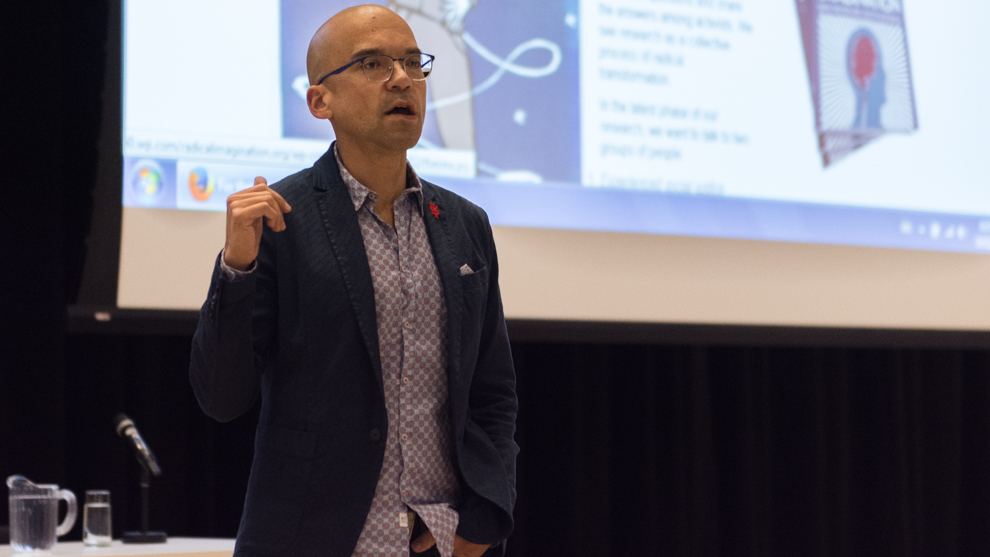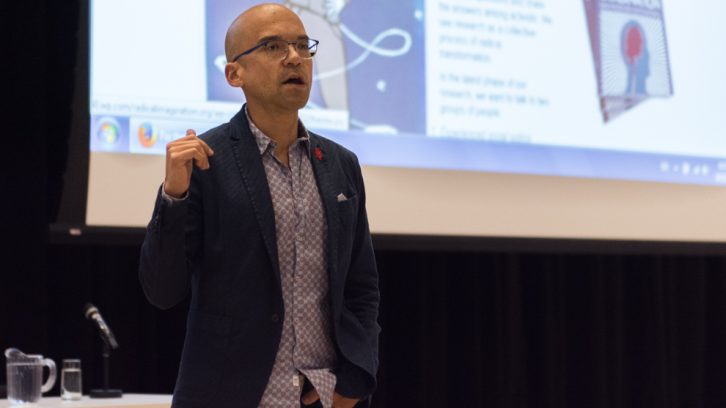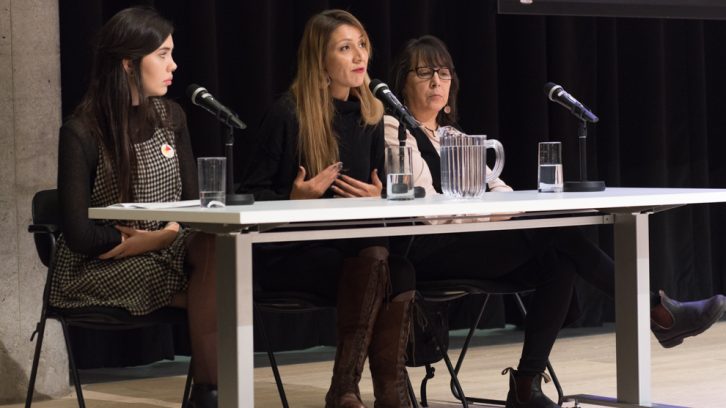Activism
Fostering radical ideas through films
How the Radical Imagination Project is promoting activism one film at a time

caption
Alex Khasnabish speaks at a film screening event at the Halifax Central Library.
caption
Alex Khasnabish speaks at a film screening event at the Halifax Central Library.Alex Khasnabish wants to better equip those interested in social movements – and he’s doing so by sitting them down for a film screening and talking about them.
Khasnabish set up Monday’s event at the Paul O’Regan Hall in the Halifax Central Library. As the co-director of the Radical Imagination Project, he’s set up other, similar events.
“It’s only when you bring people together in spaces, like a film screening for example, and have a challenging but productive conversation around the ideas that come out of it, that people’s sense of possibility gets stimulated,” he said.
Khasnabish is an assistant professor in the department of sociology and anthropology at Mount Saint Vincent University. He started the Radical Imagination Project in 2010 with Max Haiven, an assistant professor at NSCAD University. The two felt that, in addition to research, they could provide spaces and resources to people promoting social movements.
“(The) radical imagination is that collective capacity to imagine the world as it might be otherwise,” Khasnabish said, noting that the project provides a platform to study, broadcast and promote the radical ideas that emerge from these movements.
The project has produced articles from its academic research and published them in scholarly journals and magazines. It’s also helped to facilitate events like Free School, a free community event that takes place throughout the year, where people participate in workshops and classes to share skills and knowledge.
“We firmly believed that there was a relationship and a role to be played by university-based scholar activists who could contribute in some way to people struggling with social injustice,” Khasnabish said.
One of the ways the project does this by holding the film screenings with a short panel discussion afterwards.
On Monday, it was “Is the Crown at War with Us?,” a documentary about the issues surrounding the relationship between Canada and its First Nations. The panel discussion focused on Indigenous and settler solidarity.
Emily Hong, one of the panelists, thinks that the initiatives the Radical Imagination Project takes is important.
“The Radical Imagination Project is bringing these stories of our government’s modern-day colonialism to the public,” Hong said in an interview. “(They are) stories we don’t learn in school and stories that don’t cut it in popular media and (are) making them accessible to people who are not necessarily active in political organizing.”

caption
Emily Hong (left), Tayla Paul (middle), and Sherry Pictou (right) speak at the panel discussion portion of the film screening on Monday night.Although, after six years, Khasnabish said the project is in “a bit of a transition phase.”
“We were thinking about wrapping the project up, but I’m still here and the more that I thought about that, I think it’s not quite time to turn off the lights and close the doors,” he said.
Khasnabish said they intend to continue with their research and film screenings. They also recently started the “For the Long Haul” initiative, a new round of research. The initiative involves interviewing people with and without backgrounds in activism to find ways to make social justice movements more self-sustaining.
As for the impact of the Radical Imagination Project, Khasnabish is confident the project had made and will make a difference.
“People tell us that there’s something in the work around the radical imagination and using university-based research as a way to engage and help amplify movements,” he said. “If they’re saying it, then we think it’s true and worthwhile.”

